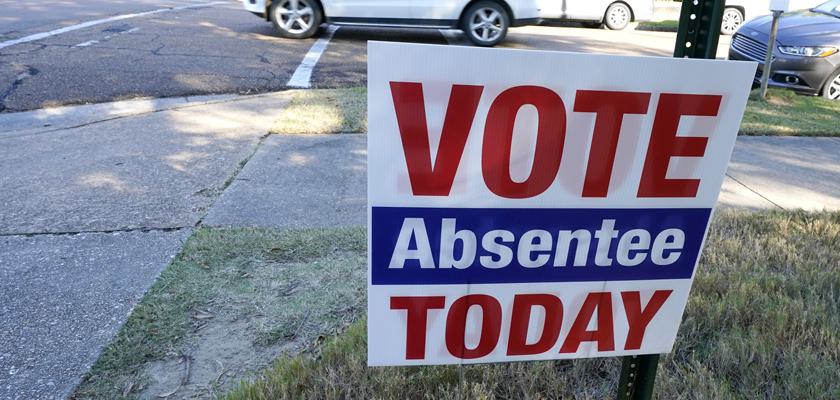MONTGOMERY — The contentious bill restricting ballot harvesting in Alabama cleared the Alabama House of Representatives on Thursday.
The Senate passed the bill last month. Since the House committee amended it, the Senate must now concur with the changes before it can go to Gov. Kay Ivey for her signature.
Senate Bill 1 (SB1), sponsored by State Sen. Garlan Gudger (R-Cullman), would make it a Class C felony for a third party to knowingly receive a payment or gift for distributing, ordering, requesting, collecting, completing, prefilling, obtaining or delivering a voter's absentee ballot application.
The Alabama Republican Party and Secretary of State Wes Allen back the bill.
The legislation also makes it a Class B felony to knowingly pay or provide a gift to a third party to distribute, order, request, collect, prefill, complete, obtain, or deliver a voter's absentee ballot application.
There are exemptions in the bill for U.S. citizens, military members and military families who vote by absentee ballot overseas. According to the legislation, voters who require assistance to vote due to blindness, disability, or inability to read or write may be assisted by an individual of the voter's choice "other than the voter's employer or agent of that employer or officer or agent of the voter's union."
State Rep. Jamie Kiel (R-Russellville) presented the bill before the House. House Democrats used debate time on multiple bills to object to the legislation. After an hour-and-a-half of debate, the body voted in favor of cloture.
“This bill makes it illegal to pay or receive payment to assist voters in completing an absentee ballot application, known commonly as ballot harvesting,” Kiel said. “This bill would prevent absentee ballot brokers and third parties from manipulating the absentee voting process and intimidating or confusing absentee voters. This bill does not change voter registration outreach efforts in the state.”
Much Democratic opposition pointed to the lack of instances of absentee fraud in the state, even intimating that the bill was an effort to stifle the black vote.
“It’s amazing to me that of the millions of ballots cast in Alabama since 2000, there has only been documented 16 instances of absentee ballot fraud, zero instances of absentee ballot application fraud, and each instance was by a candidate or campaign staff,” said State Rep. Patrick Sellers (D-Birmingham). “Zero instances by a community member, a church group, or civic organization. Even put in the best possible light, this isn’t a bill in search of a problem.”
He continued, “I think this bill creates a problem out of thin air, then, impressively, fails to actually address it. It’s almost like when people don’t have in formation, they use their imagination.”
The bill provides exceptions for disabled voters, stating, “Any voter who requires assistance to vote by reason of blindness, disability, or inability to read or write may be given assistance by an individual of the voter’s choice, other than the voter’s employer or agent of that employer or officer or agent of the voter’s union.”
Despite the exception, several Democratic lawmakers speculated that the regulation would discriminate against disabled individuals.
State Rep. Kenyatté Hassell (D-Montgomery) talked about a 97-year-old client who is not technically disabled but cannot complete an application himself.
“He’s 97,” Hassel said. “He’s just old. His hands shake. He’s not getting money for being disabled; he’s not labeled being disabled.”
Kiel responded that the bill provides protections for individuals needing assistance, regardless if they are registered as disabled or not.
After the cloture vote, the House passed SB1 with a final vote of 75-28.
To connect with the author of this story or to comment, email craig.monger@1819news.com.
Don't miss out! Subscribe to our newsletter and get our top stories every weekday morning.










